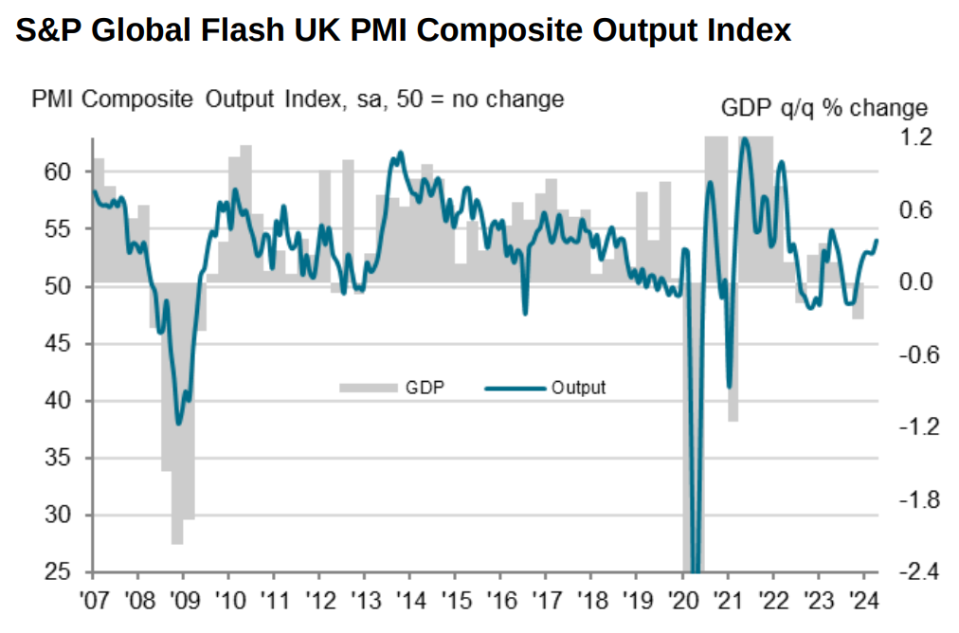Strong services sector helps UK economy continue to ‘gain momentum’, but inflationary fears mount

Output in the UK economy’s private sector reached its highest level in 11 months thanks to strength in services, but cost pressures accelerated, a sign that inflationary pressures may prove persistent.
S&P’s purchasing managers’ index (PMI), which measures activity in the private sector, rose to 54.0 in April, up from 52.8 the month before and well above the 50 no-change mark. Economists had expected the PMI to dip slightly compared to last month.
The figures were consistent with GDP rising at a quarterly rate of around 0.4 per cent.
Although the manufacturing sector recorded a marginal decline in activity in April, output from the services sector climbed for the sixth consecutive month.

Firms in the services sector commented on “rising business and consumer spending, supported by a recovery in broader economic conditions”. The services specific PMI rose to 54.9 in April.
The manufacturing PMI meanwhile slipped to 49.1, down from 50.9 last month, with respondents commenting on weak market conditions and “customer destocking”.
Strength in the services sector helped new total business volumes rise at the fastest pace since last May.
“The UK economy’s recovery from recession last year continued to gain momentum,” Chris Williamson, chief business economist at S&P Global Market Intelligence said.
The survey will raise hopes that the UK economy is able to kick on from its solid start to the year. Figures out earlier this month showed that GDP grew 0.2 per cent over the past three months– the first time it has grown on a quarterly basis since last summer.
Economists are hopeful that a combination of falling inflation and interest rate cuts will support consumer spending in the year to come.
“The unexpected rise in the composite activity PMI in April suggests the economy grew faster at the start of Q2, which supports our view that the economic recovery is well underway,” Ashley Webb, UK economist at Capital Economics said.
However, the survey showed that input price inflation accelerated to its sharpest pace in 11 months on the back of higher staff costs. In particular, survey respondents pointed to the impact of the near 10 per cent increase in the National Living Wage, which was introduced at the start of April.
“The upward pressure on inflation will add to concerns that a sustainable path to below target inflation has not yet been achieved,” Williamson continued.
Concerns around persistent inflation intensified last week after March’s figures came in slightly ahead of expectations. Wage growth in the past three months also exceeded expectations.
But Webb suggested that the rise in input costs would not be too much of a concern for the Bank of England at the moment because the survey also showed falling output prices.
The Bank would only take notice if the downward trend in output prices starts stalling. “At the moment though, the Bank will probably view this as a risk and unless it materialises may not prevent rate cuts,” Webb said.
PMI data from the eurozone, also out this morning, showed that the recovery in the bloc gained some momentum with the PMI rising to an 11-month high of 51.4.
“The eurozone got off to a good start in the second quarter,” Cyrus de la Rubia, chief economist at Hamburg Commercial Bank, said.